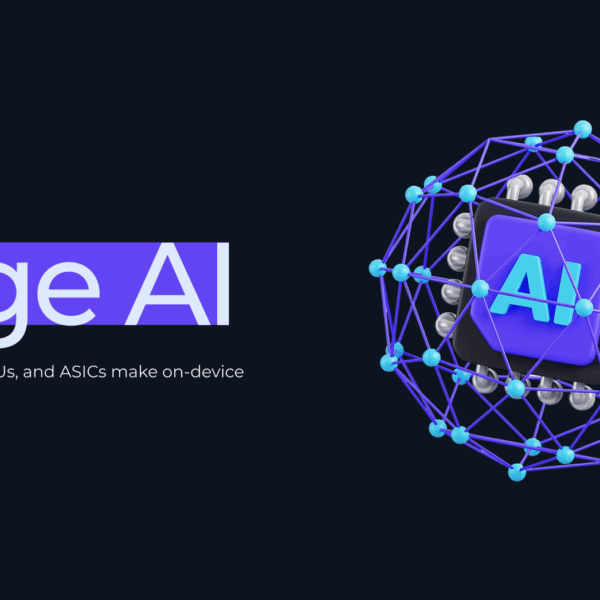Technology has continually surprised us with what it can do. A supercomputer in our pocket was unthinkable a few decades ago. And now, here we are, scrolling, working, and even running businesses for our smartphones. Yet another technological revolution, quiet in the background, is currently being built – Quantum Computing.
But as with any breakthrough, both opportunities and risks come with quantum computing. Let us unpack this.
What is Quantum Computing in the Most Simple Words?
Let’s keep it really simple. Normal computers, the ones we use every day, run on bits – 0s and 1s. Think of them as tiny switches that can either be On (1) or Off (0). On the other hand, quantum computers use qubits. These qubits can be both 0 and 1 at the same time (thanks to a concept called superposition).
Imagine flipping a coin – it is both heads and tails until it lands.This means quantum computers can process a truly mind-boggling number of possibilities at once. That is why they are so powerful, and that is why people call them the “future of computers.”
The Opportunities with Quantum Computing
So where does that power come in to actually help us? These are some of the most exciting opportunities:
- Revolutionizing Healthcare & Drug Discovery – Developing a new medicine takes years of trial and error. With quantum computing, scientists can simulate complex molecules and predict how drugs will interact with the human body much faster. Imagine curing diseases like cancer or Alzheimer’s in a fraction of the time.
- Breaking Barriers in Artificial Intelligence – AI has grown rapidly, but it still has limitations. It could supercharge machine learning by processing enormous datasets in seconds. This could mean smarter AI systems, better predictions, and faster automation across industries.
- Solving Climate Challenges – Climate change is a major global issue. QC can aid the modelling of weather systems, carbon capture analysis, and sustainable energy solutions design more effectively. This isn’t science fiction – it’s about saving the planet with smarter tools.
- Boosting Financial Systems – Banks and investment firms deal with risk models, fraud detection, and portfolio optimization. QC could provide solutions to complex scenarios in real-time, making financial decisions more accurate and secure.
- Materials and Manufacturing Innovation – Quantum computing can be used to help engineers quickly examine countless combinations, from stronger batteries to lightweight yet durable materials for planes or cars. This could lead to the next big industrial revolution.
The Risks We Can’t Ignore
Of course, no technology comes without its shadows. Here are some of the real concerns around quantum computing:
- Cybersecurity Threats – Today, most of our digital security- like online banking or confidential communication – relies on encryption. Quantum computers could break these codes in minutes. This means the world’s sensitive data could be at risk if quantum technology falls into the wrong hands.
- High Costs and Accessibility – Building and maintaining a quantum computer is incredibly expensive. Right now, only tech giants and governments can afford them. If access remains limited, it may widen the gap between powerful nations and smaller economies.
- Job Disruption – Like AI and automation, quantum computing may change the job landscape. Certain roles in data analysis, cybersecurity, and finance may get replaced or drastically altered. New jobs will be created, yes, but the transition could be challenging.
- Ethical Dilemmas – With great power comes great responsibility. If quantum computing can simulate new drugs, it could also design harmful chemical weapons. Questions around regulation, ethical use, and global cooperation will become critical.
- Uncertainty and Hype – Quantum computing is still in its infancy. While the potential is huge, overpromising can lead to disappointment. Pessimism versus realism must be maintained.
Striking the balance
Then should we fear or welcome quantum computing? The answer is: Both, but wisely.
The history is this; every breakthrough in technology has cast its spells of light and shadow. The Internet connected the world, but with it came cybercrime. Social media made the world’s population heard, but its downside has been the misinformation it spread.
A similar equilibrium is called for quantum computing. The governments, businesses, and researchers must join hands to formulate global standards and security frameworks. Meanwhile, investment in education and training will ease the people’s transition into the new world that will be brought about by quantum computing.
Final Thoughts
Quantum computing is not about replacing traditional computers – it is about unlocking problems that are currently unsolvable. It holds the potential to cure diseases, tackle climate change, strengthen industries, and transform the way we think about technology.
In the end, it is not just about the machines we build, but how humanity chooses to use them. Quantum computing is a reminder that the future is not only about innovation – but about responsibility.
What do you think? Should we be more excited or more cautious about quantum computing?









